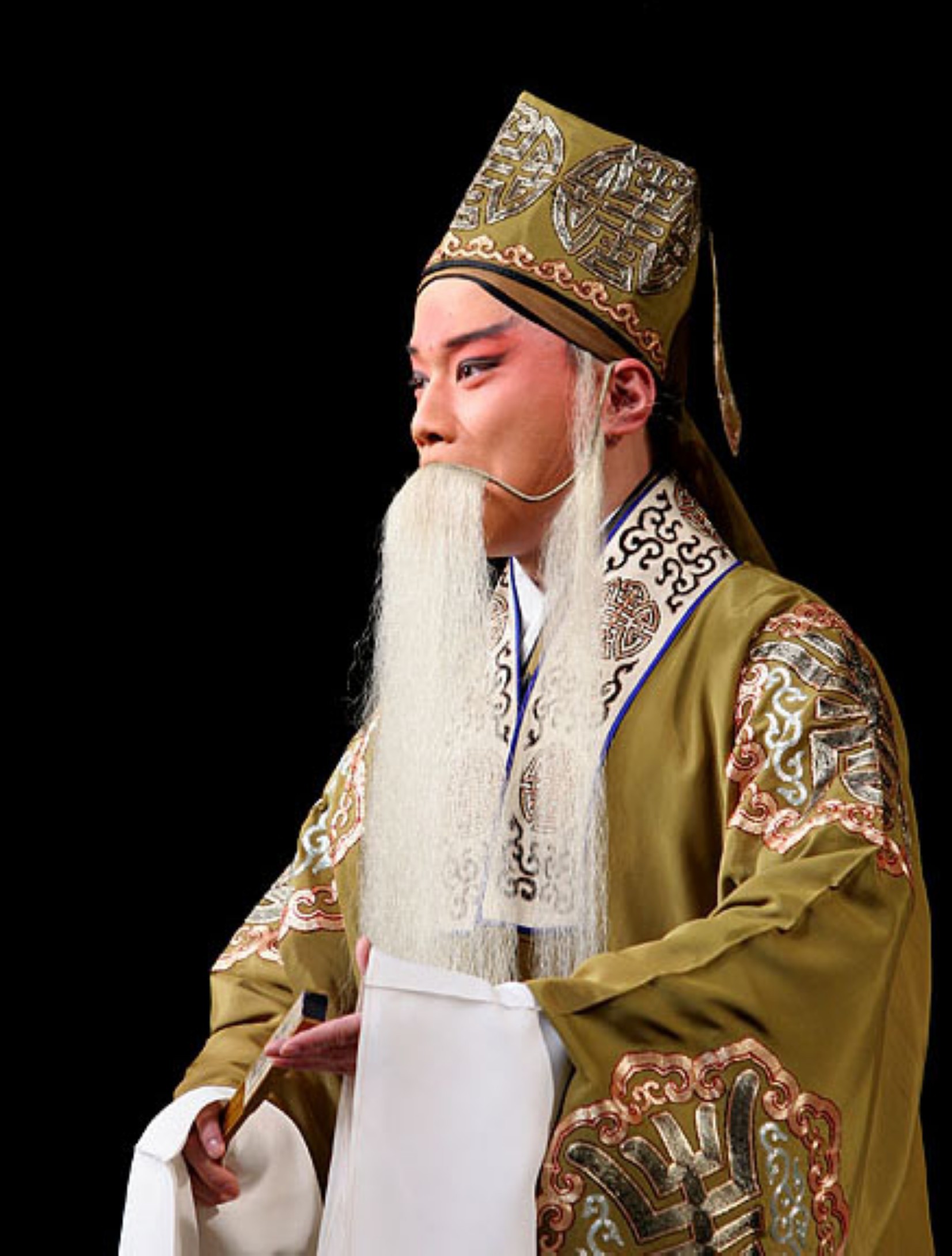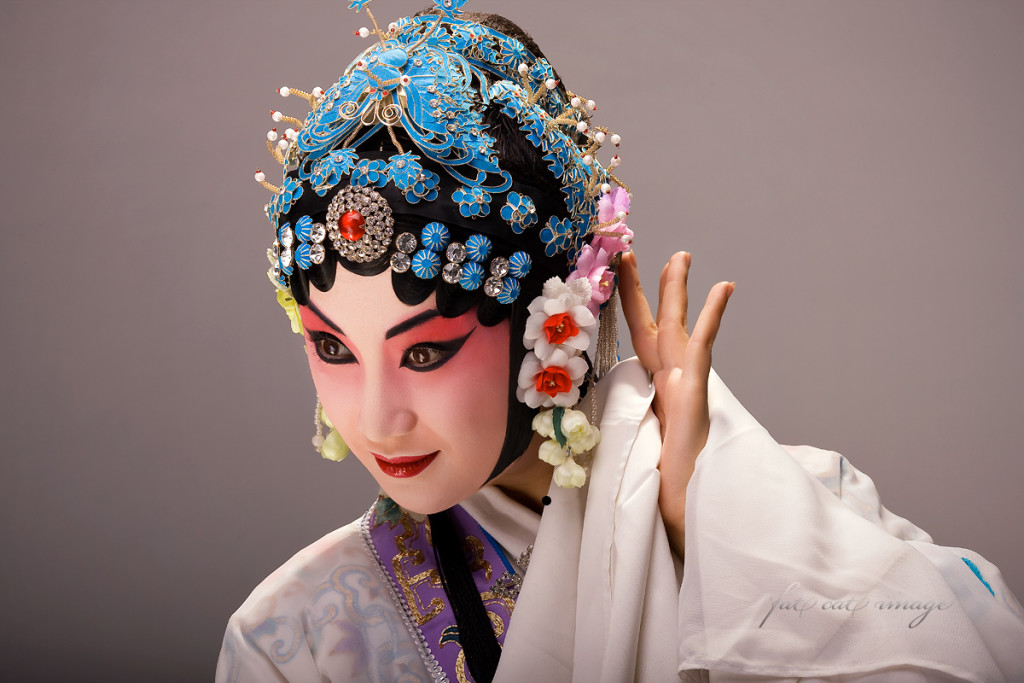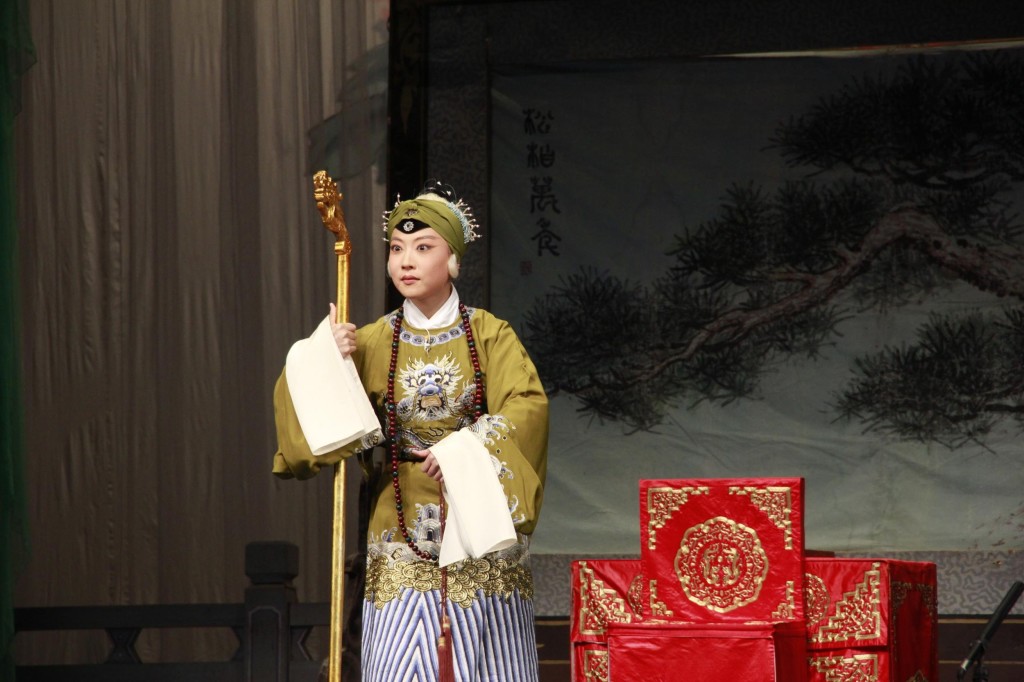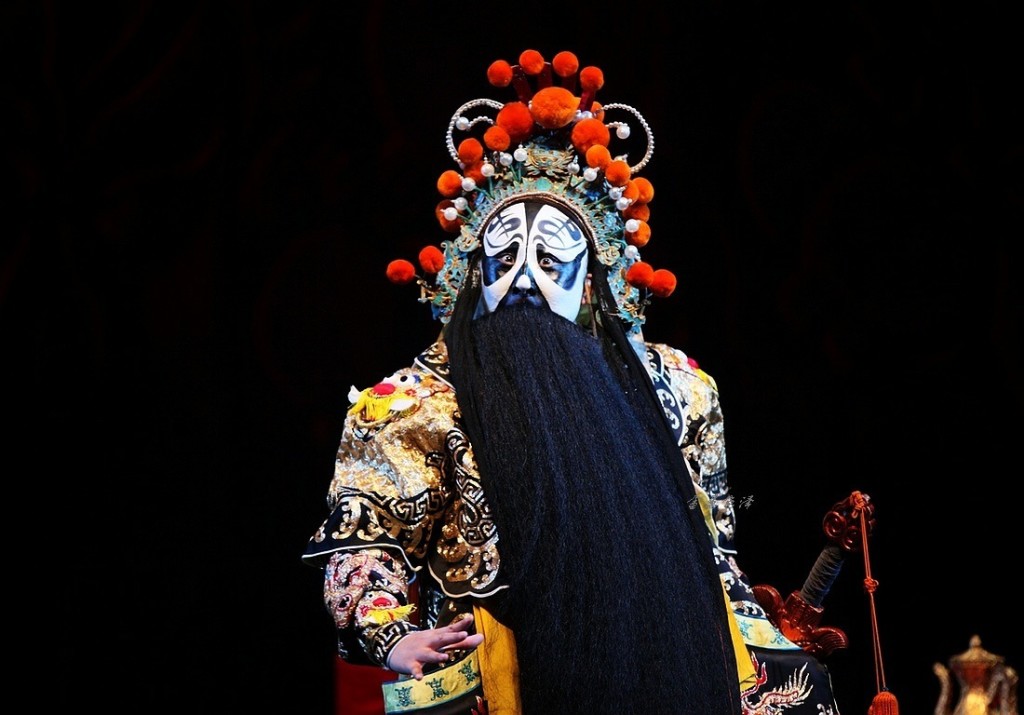The Beijing Opera repertoire runs to more than 1,000 items, all of which tell and retell touching stories of sorrow, happiness, separation, and reunion. Their rich and varied characters leave indelible impressions in the minds of opera audiences, and very distinct role characterizations have emerged over the years in Beijing Opera, which are referred to as “role categories”(行当).
In Beijing Opera, the characters on stage are generally divided into four types, namely, sheng, dan, jing, and chou (male, female, painted face and clown). The reason the role categories take the names of Sheng, Dan, Jing and Chou is that it is said that they were chosen to mean the opposite. Sheng in Chinese may mean “strange” or “rare”, but the chief male is a character of most seen. Dan, which means “morning”, “masculine”, is in contrary with the feminine nature of the characters. Jing means “clean”. In fact, the paintings on face make the characters look like unclean but colorful. And Chou in Chinese sometime represents the animal “Cow”, which, in some aspects, is slow and tardy. In contrast, Chou characters are usually active and quick. The actors and actresses tend to specialize in one or two of these role categories.
Laosheng (老生, old man):
As the name suggests, actors, or actresses in rare cases in this role category perform the roles of middle-aged and senior males, with light makeup and wearing finely decorated costumes. In accordance with the differences of age of the characters, they wear artificial beards or whiskers of black, gray or white. A Lao Sheng’s voice is soft and pleasant to listen to, neither too harsh nor too high pitched, but gentle and firm. Minor officials or land owners who have attained a small degree of responsibility are also included in this role.
Xiaosheng (小生,young Man):
Artists in this role category play young male roles (typically young scholars). They usually wear fine costumes. Over a thin layer of pinkish powder covering the whole face, greasepaint is used to delineate the eyes and brows, to suggest the vitality of youth. The Xiao Sheng is usually small and slight of stature, and his clothes are often quite elaborate if a young man of society or a young warrior is being represented, but can be subdued if they are those of an impoverished scholar. The young warrior can often be distinguished by his long pheasant feathers which rise in sweeping curves from his hat. No beard is worn for this part.
Dan (旦,female):
Mainly depicting middle-aged and young female roles, the actresses or actors in rare cases usually wear heavy makeup. Their cheeks are mostly painted red to set off the powdery white of the forehead, nose and jaw. Heavy black grease-paint is used to highlight the eyes and brows, and red color is applied to the lips to demonstrate the classical beauty of Chinese women.
Laodan (老旦,old female):
The makeup is usually light, with light delineation of the corners of the eyes and cheeks to give the audience the impression that the characters have reached the evening of their lives and are reliable and steady.
Jing (净,painted face):
Jing actors are usually, in fact, extroverts. The general rule for the basic color is: red for good,white for treacherous, black for brusque, and blue for wild, i.e. a bandit would have a blue face. All Jing actors wear a heavy, ornate costume and a head dress with a padded jacket underneath to enhance the effect, They can be divided into three main types: Dong-Chui(T’ung Ch’uei), better known as Hei Tou (black face), who is good at singing and usually a loyal general; Jia Zi(Chia Tze), who is good at acting , and generally a more complicated character; and Wu Jing, who is mainly proficient in fighting and acrobatics and seldom plays a very prominent role.
Chou (丑,clown):
Lastly there is the Chou or comedy actor who generally plays the role of a dim but likeable and amusing character with blinking eyes and all the appropriate gestures. Sometimes the Chou can be a rascal, with a slightly wicked nature. Alternatively a scholar or prince – an eccentric or representing the sort of scholar or prince who would not command much respect. Chou parts can be divided into two types: Wen Chou, who is usually a civilian, such as a jailer, servant, merchant or scholar; and Wu Chou, who performs minor military roles as a soldier and must be skilled in acrobatics. His costume is either elaborate or fussy if of high social standing, but simple if of a low standing.






